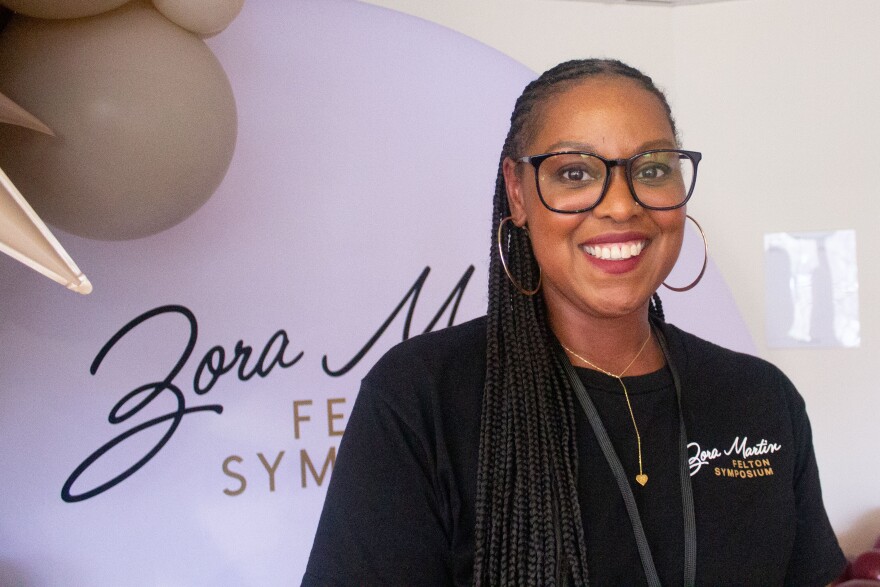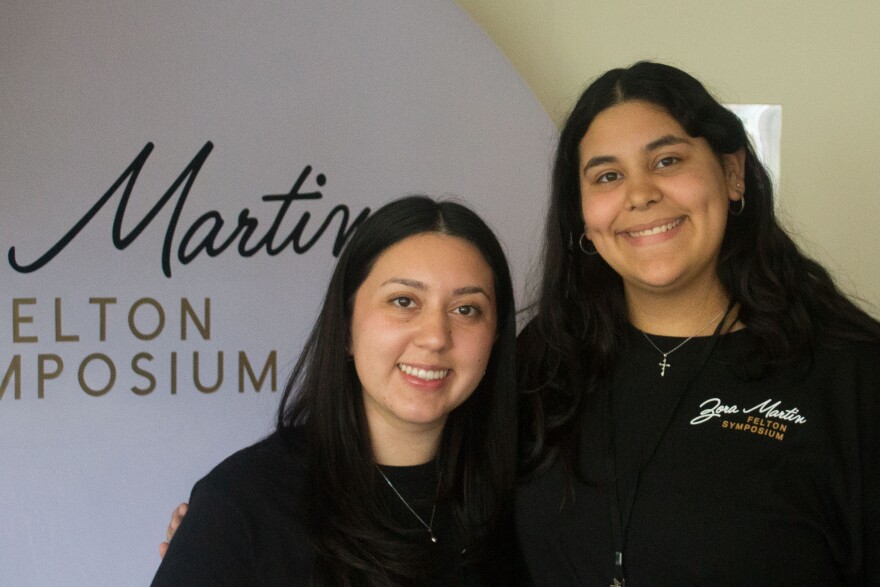BETHLEHEM, Pa. — A symposium for young women of color is aiming to help them overcome systemic barriers to college education, as well as self-doubt.
The Zora Martin-Felton Symposium, held on Friday, is named after the first person of color to graduate from Moravian University. Felton, who was born in Allentown in 1930, graduated from Moravian in 1952 and lived until 2022 when she died in Maryland.
The one-day symposium is a long day of classes, speeches, interactive workshops, and networking opportunities, designed for an audience of high school-age women of color.
'Build them up and send them out there strong'
It aims to promote financial literacy, create support networks, and increase awareness of social issues. In addition and perhaps most importantly, according to organizer Belinda Waller-Peterson, is boosting self-esteem.
"This type of program and programs like it provide space for young women of color, to acknowledge and affirm themselves. To validate their experiences. It is a radical idea, in communities that want to break [the girls] down, yes. But it is our responsibility to build them back up, and send them out there strong."Belinda Waller-Peterson, Associate Dean for Equity and Inclusion at Moravian University
“I'm a mother of two children, two Black children,” Waller-Peterson said.
“So, I believe deeply in building our children up, and sending them out into the world as strong as we can.”
Waller-Peterson joined the university as a professor in 2016, and at the time, was one of only two Black people on the entire campus' teaching faculty. Now, she is the Associate Dean of Equity and Inclusionat Moravian University.

Waller-Peterson said one of the most precious parts of the symposium is the production of resilience among the girls. Her professional background was in health care (as a Registered Nurse) and she expressed a special concern for health disparities faced by people of color.
Waller-Peterson acknowledges experiencing racism in her life — “I'm a Black woman in the United States. Yes, I've experienced it,” she said with a slight laugh — but prefers to focus on the positive; the “Where do we go from here?”

“So this type of program and programs like it provide space for young women of color, to acknowledge and affirm themselves. To validate their experiences,” Waller-Peterson said. When asked if she believed this was a radical thing to do, she replied: “It is a radical idea, in communities that want to break [the girls] down, yes. But it is our responsibility to build them back up, and send them out there strong.”
The event is put on yearly and open to women of color from local high schools in the region.


